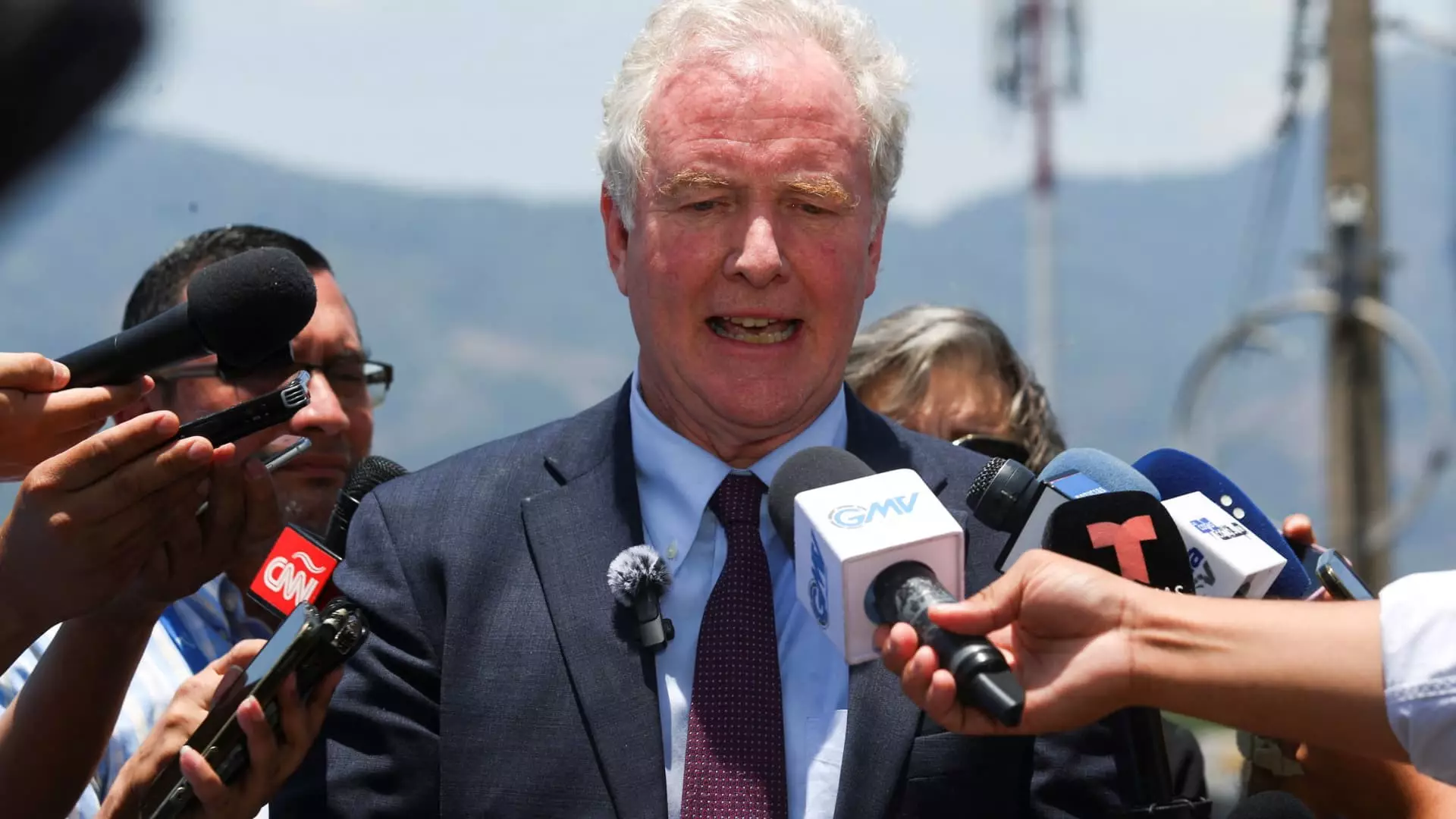The recent ordeal of Kilmar Abrego Garcia, who was inadvertently deported to El Salvador by the Trump administration, raises critical questions about the systemic failures within the U.S. immigration system. Imagine being forcibly removed from the only home you’ve known for over a decade, replete with dreams and struggles, and thrust into uncertainty in a country you fled to escape violence and oppression. This distressing situation is not just an isolated incident; it is emblematic of a broader, troubling trend in how immigration policy has treated vulnerable individuals.
Senator Chris Van Hollen’s trip to meet with Garcia signals a dire need for accountability. His emphasis on the humanity of Abrego Garcia—communicating love from one spouse to another, emphasizing personal connections—highlights a narrative that often gets lost in political discourse. It reminds us that behind the policies and statistics are real lives, with real families waiting anxiously for news. Despite Supreme Court rulings, the resistance exhibited by the Trump administration raises alarms about who holds power in the asylum process and how that power can be misused to perpetuate injustices.
A Flagrant Disregard for Justice
The Trump administration’s behavior, as described by Van Hollen, points to a worrying trend of undermining judicial authority. By refusing to facilitate Garcia’s return after a clear Supreme Court ruling—an act that should command compliance—this previous administration sent a dangerous message: the law is optional. It is not merely an administrative slip-up but a conscious choice to disregard the system designed to protect the most marginalized among us.
Van Hollen’s insights on being denied access to Garcia’s detention center—the Central American facility known for its severe conditions—only deepen the gravity of the situation. This lack of transparency belies any claims of a just legal process. Are we really a nation built on the rule of law when our systems actively prevent oversight and accountability? The suppression of communication between Garcia and his family, combined with outright denials for an in-person visit, underscores the chilling reality that many face when caught in the immigration web.
The Role of Fear in Immigration Policy
This incident illustrates the pervasive fear that has enveloped the immigration conversation over the years. The Salvadoran President, Nayib Bukele’s dismissal of requests for Garcia’s return is not merely an act of defiance; it is a metafor for the way surrounding nations often navigate their relations with the U.S. government—often at great expense to their citizens. Decisions are made not in the best interests of people but based on political theatrics that disregard human lives.
Moreover, as Van Hollen met with Salvadoran officials and human rights groups, the fragmented narratives surrounding immigration issues came into sharper focus. Legacies of violence, poverty, and the looming threat of criminalization are thrust upon those who are seeking refuge. This is not just a matter of legal status; it is an issue of human dignity and moral responsibility.
Government Accountability or Political Theatre?
The plight of Kilmar Abrego Garcia has begun to stir responses from political figures, with demands for proof of health and wellbeing flooding into the Department of Homeland Security. This burgeoning outrage raises concerns about whether these calls will translate into substantial policy changes or merely serve as political theatre. The risk lies in viewing individuals like Garcia as tokens in a larger game of red versus blue politics rather than human beings deserving of help and empathy.
Historically, the plight of marginalized communities becomes pawned off as a bargaining chip in greater political debates, often sidelined amid other priorities. For a country that prides itself on its immigration values, this hypocrisy is both alarming and disappointing. The spirit of compassion and justice should, and must, guide our approach to immigration reform, positioning humanity above policy.
The overarching narrative of Kilmar Abrego Garcia’s wrongful deportation goes beyond politics; it’s a wake-up call about the urgent need for reforms that prioritize justice, dignity, and accountability in the immigration process. As attention has landed on this case, the responsibility of those in power to act ethically and transparently becomes even more pressing. It is crucial that lawmakers take a stand against the systemic failures that lead to such heartbreaking outcomes—otherwise, they risk losing their moral legitimacy in the eyes of the very people they serve.


Leave a Reply